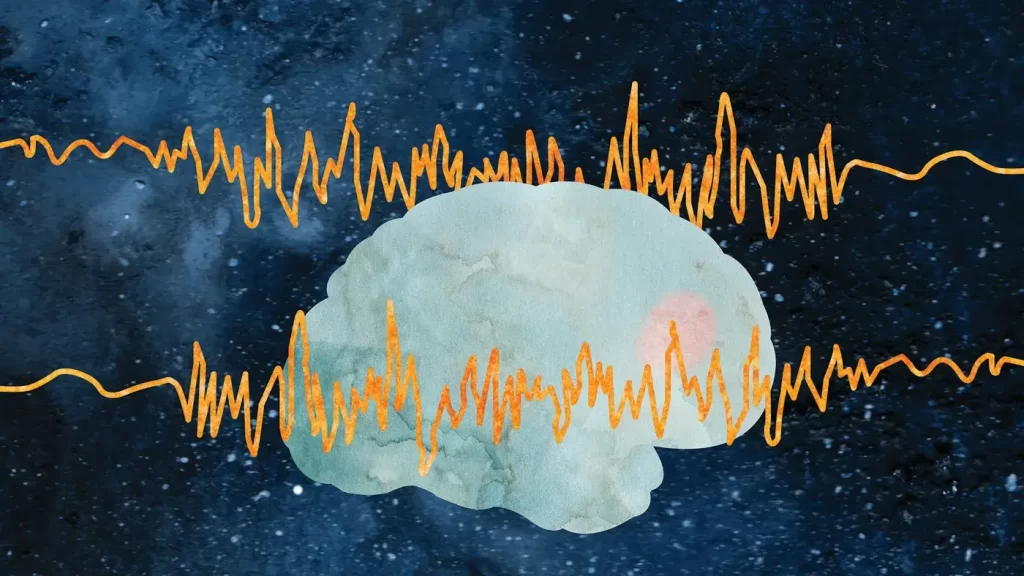Table of Contents
What Is Epilepsy?
Almost 50 million people suffer from epilepsy worldwide. It is a chronic noncommunicable neurological disease. Its defining feature is reoccurring seizures. Seizures are brief episodes of jerking movements. It can affect just a portion of the body or the entire body. Along with sudden jerks, it also includes loss of consciousness and inability to control bowel or bladder function.
People of all ages, ethnic backgrounds, and cultures can have the diagnosis of epilepsy. It is one of the most common disorders of the nervous system. According to CDC reports, Nearly 3 million Americans have epilepsy, and 200,000 people in the country are diagnosed with it each year.

What Causes Seizures?
The brain typically produces electrical impulses that follow a regular pattern. Chemical messengers known as neurotransmitters carry these impulses along neurons. It is the network of nerve cells in the brain and the entire body. These cells are responsible for carrying sensory information from different parts of the body to the brain.
Basically, seizures are brought on by undergoing excessive electrical discharges of brain cells. It disturbs the regular neural impulse pattern. Such discharges can affect different places throughout the brain. The number of seizures that occur each day can range from fewer than one per year to several.
An epileptic seizure can result from anything that disturbs the regular connections between the brain’s nerve cells. A high fever, low blood sugar, high blood sugar, alcohol or drug withdrawal, or a concussion are common examples. In fact, everyone is likely to have one or more seizures in these conditions. Although one is thought to have epilepsy if they experience two or more seizures.
Furthermore, We have written accounts of epilepsy that date as far back as 4000 BCE. Thus, it is among one of the oldest known medical conditions in the world. Epilepsy has been shrouded in fear, misconception, stereotyping, and social stigma for centuries. Thus, the quality of life for those who have the disease and their families may be negatively impacted by this stigma. This is why, it persists in many nations today.
Prevalence of Epilepsy
Three million people in the United States and 50 million people worldwide are affected by epilepsy, according to the Epilepsy Foundation. The cause of epileptic seizures is unknown in 70% of cases. Although they may be linked to genetics or brain damage. According to studies, 10% of people will experience seizures at some point in their lives.
Epilepsy affects more men than women. Teenagers and children are more likely to suffer from genetic or undiagnosed epilepsy. Epilepsy can occur at any age due to a brain injury or infection. According to the research, 70% of children and adults with newly diagnosed epilepsy can be expected to go into remission after five years or longer without a seizure while taking medication. In addition, while taking medication, 75% of seizure-free individuals can eventually start tapering themselves off it.

Socioeconomic Factor
49 out of every 100,000 people annually get the diagnosis of epilepsy in high-income countries . Further, this number can reach 139 per 100 000 in low- and middle-income countries. That is because, endemic diseases like malaria and neurocysticercosis, road traffic accidents, and birth injuries are more common causes of epilepsy there. Furthermore, there are differences in the healthcare system, availability, and access to care. Although, Nearly 80% of people with epilepsy reside in low- and middle-income countries.
Causes Of Epilepsy
There are various causes of epilepsy. Genetic mutation, imbalance of neurotransmitters, tumors, strokes, brain damage from disease or trauma, or a combination of these can cause epilepsy. Epilepsy has also no known cause in the vast majority of cases.
Genetic Causes
A genetic mutation can increase a person’s risk of developing epilepsy. Many individuals with genetic mutations, though, might never experience epilepsy. According to experts, combination of environmental factors and genetic predispositions are frequently causing an increase in epilepsy.
Among 30 to 40 percent of people, the causes of epilepsy are genetic predispositions. Moreover, two- to four-fold increased risk of epilepsy exists in first-degree relatives of individuals with inherited epilepsy.
Prenatal Injury
Babies are vulnerable to brain damage before birth. Different factors birth. A mother’s infection, inadequate nutrition, or oxygen deprivation. Thus, in many cases prenatal injuries are among significant causes of epilepsy and cerebral paly as well.
Structural Causes
A process or injury that affects a person’s normal brain structure is a structural cause of epilepsy. Examples include head trauma, strokes, and brain tumors. These injuries make the brain more vulnerable to seizures, which can result in epilepsy.
Other symptoms, such as difficulty using one arm, leg, or half of the body, difficulty speaking, difficulty with eyesight on one side, and so on, may also be present in individuals with structural causes.

Chemical Imbalance
The primary neurotransmitters involved in the pathophysiology of neural balance are glutamate and gamma-aminobutyric acid (GABA). Thus, abnormal changes in these molecules can potentially cause irreversible neural damage and can cause epilepsy as well.
Infections
Number of infections are also among substantial causes of epilepsy. In fact, infections are among the most common cause of epilepsy. It is more prevalent in developing countries. Neurocysticercosis, cerebral malaria, and bacterial meningitis are among few infections that can cause epilepsy.
Developmental Disorders
Developmental disorders like autism and epilepsy can sometimes coexist.
Cryptogenic Epilepsy
It is the type of epilepsy in which the cause is unknown. In fact, doctors are unable to understand the exact cause. It is also one of the most common causes among adults.



